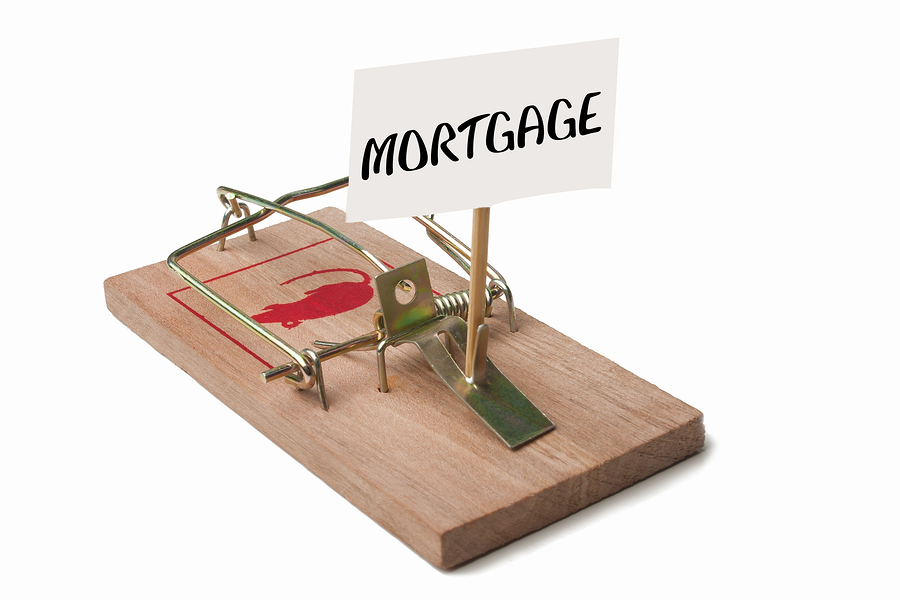Like it or not, those of us born in the 30s, 40s, or 50s are seen as a target-rich environment for frauds.
If you have not been exposed to a fraud of some kind in the recent past, chances are you know someone who has. We certainly read about frauds big and small on a too frequent basis. We see major frauds committed by corporations such as Enron and individuals such as Bernie Madoff. We read about smaller ones like embezzlement from youth athletic organizations, churches, schools and others.
We are constantly exposed to people telling us of the wonderful opportunity they have of increasing our financial status or provide goods and services that will make our lives better.
We know and accept that any investment we make has a certain level of risk; and we also know that to increase the return on our investments that risk must increase as well. But how do we prevent the all too prevalent schemes that will take our money with no return at all?
Like it or not, those of us born in the 30s, 40s, or 50s are seen as a target rich environment for frauds. Scam artists like us because we are usually polite and trusting and have access to cash in the form of our nest egg. With our increased use of the internet and calls from telemarketers (if you do not have yourself on the Do Not Call list) there is ample opportunity to be taken in and lose your investment.
In fact, it is estimated that while we comprise about 15% of the population, we account for 30% of fraud victims according to Money Wise.
There are frauds associated with almost everything we purchase or are interested in and the Federal Bureau of Investigation is an excellent source of information about and how to avoid frauds.
Rather than paraphrase their findings and advice we will quote their advice from their web site.
8 Tips to avoid health insurance fraud.
- Never sign blank insurance claim forms.
- Never give blanket authorization to a medical provider to bill for services rendered.
- Ask your medical providers what they will charge and what you will be expected to pay out-of-pocket.
- Carefully review your insurer’s explanation of the benefits statement. Call your insurer and provider if you have questions.
- Do not do business with door-to-door or telephone salespeople who tell you that services or medical equipment are free.
- Give your insurance/Medicare identification only to those who have provided you with medical services.
- Keep accurate records of all health care appointments.
- Know if your physician ordered equipment for you.
5 Tips to avoid counterfeit prescription drugs.
- Be mindful of appearance. Closely examine the packaging and lot numbers of prescription drugs and be alert to any changes from one prescription to the next.
- Consult your pharmacist or physician if your prescription drug looks suspicious.
- Alert your pharmacist and physician immediately if your medication causes adverse side effects or if your condition does not improve.
- Use caution when purchasing drugs on the Internet. Do not purchase medications from unlicensed online distributors or those who sell medications without a prescription. Reputable online pharmacies will have a seal of approval called the Verified Internet Pharmacy Practice Site (VIPPS), provided by the Association of Boards of Pharmacy in the United States.
- Product promotions or cost reductions and other “special deals” may be associated with counterfeit product promotion.
8 Tips to avoid funeral and cemetery fraud.
- Be an informed consumer. Take time to call and shop around before making a purchase. Take a friend with you who may offer some perspective to help make difficult decisions. Funeral homes are required to provide detailed general price lists over the phone or in writing.
- Educate yourself fully about caskets before you buy one and understand that caskets are not required for direct cremations.
- Understand the difference between funeral home basic fees for professional services and any fees for additional services.
- You should know that embalming rules are governed by state law and that embalming is not legally required for direct cremations.
- Carefully read all contracts and purchasing agreements before signing and make certain that all of your requirements have been put in writing.
- Make sure you understand all contract cancellation and refund terms, as well as your portability options for transferring your contract to other funeral homes.
- Before you consider prepaying, make sure you are well informed. When you do make a plan for yourself, share your specific wishes with those close to you.
- And, as a general rule governing all of your interactions as a consumer, do not allow yourself to be pressured by vendors into making purchases, signing contracts, or committing funds. These decisions are yours and yours alone.

8 Tips to avoid fraudulent “anti-aging” products.
- If it sounds too good to be true, it probably is. Watch out for “Secret Formulas” or “Breakthroughs.”
- Don’t be afraid to ask questions about the product. Find out exactly what it should do for you and what it should not.
- Research a product thoroughly before buying it. Call the Better Business Bureau to find out if other people have complained about the product.
- Be wary of products that purport to cure a wide variety of illnesses (particularly serious ones) that don’t appear to be related.
- Testimonials and/or celebrity endorsements are often misleading.
- Be very careful of products that are marketed as having no side effects.
- Products that are advertised as making visits to a physician unnecessary should be questioned.
- Always consult your doctor before taking any dietary or nutritional supplement.
17 Tips to avoid telemarketing fraud.
It’s very difficult to get your money back if you’ve been cheated over the phone. Before you buy anything by telephone, remember:
- Don’t buy from an unfamiliar company. Legitimate businesses understand that you want more information about their company and are happy to comply.
- Always ask for and wait until you receive written material about any offer or charity. If you get brochures about costly investments, ask someone whose financial advice you trust to review them. But, unfortunately, beware — not everything written down is true.
- Always check out unfamiliar companies with your local consumer protection agency, Better Business Bureau, state Attorney General, the National Fraud Information Center, or other watchdog groups. Unfortunately, not all bad businesses can be identified through these organizations.
- Obtain a salesperson’s name, business identity, telephone number, street address, mailing address, and business license number before you transact business. Some con artists give out false names, telephone numbers, addresses, and business license numbers. Verify the accuracy of these items.
- Before you give money to a charity or make an investment, find out what percentage of the money is paid in commissions and what percentage actually goes to the charity or investment.
- Before you send money, ask yourself a simple question. “What guarantee do I really have that this solicitor will use my money in the manner we agreed upon?”
- You must not be asked to pay in advance for services. Pay services only after they are delivered.
- Some con artists will send a messenger to your home to pick up money, claiming it is part of their service to you. In reality, they are taking your money without leaving any trace of who they are or where they can be reached.
- Always take your time making a decision. Legitimate companies won’t pressure you to make a snap decision.
- Don’t pay for a “free prize.” If a caller tells you the payment is for taxes, he or she is violating federal law.
- Before you receive your next sales pitch, decide what your limits are — the kinds of financial information you will and won’t give out on the telephone.
- It’s never rude to wait and think about an offer. Be sure to talk over big investments offered by telephone salespeople with a trusted friend, family member, or financial advisor.
- Never respond to an offer you don’t understand thoroughly.
- Never send money or give out personal information such as credit card numbers and expiration dates, bank account numbers, dates of birth, or social security numbers to unfamiliar companies or unknown persons.
- Your personal information is often brokered to telemarketers through third parties.
- If you have been victimized once, be wary of persons who call offering to help you recover your losses for a fee paid in advance.
- If you have information about a fraud report it to state, local, or federal law enforcement agencies.
Internet fraud.
As internet use among senior citizens increases, so do their chances to fall victim to internet fraud. Internet fraud includes non-delivery of items ordered over the internet and credit/debit card fraud. Please visit the FBI’s Internet Fraud web page for details about these crimes and tips to protect yourself.
Investment schemes.
Senior citizens, as they plan for retirement, may fall victim to investment schemes. These may include Advance Fee Schemes, Prime Bank Note Schemes, Pyramid Schemes, and Nigerian Letter Fraud schemes. Please visit the Common Fraud Schemes web page for more information about these crimes and tips for protection.

Reverse mortgage scams.
The FBI and the U.S. Department of Housing and Urban Development Office of Inspector General (HUD-OIG) urge consumers, especially senior citizens, to be vigilant when seeking reverse mortgage products. Reverse mortgages, also known as Home Equity Conversion Mortgages (HECM), have increased more than 1,300 percent between 1999 and 2008, creating significant opportunities for fraud perpetrators.
Reverse mortgage scams are engineered by unscrupulous professionals in a multitude of real estate, financial services, and related entities to steal the equity from the property of unsuspecting senior citizens aged 62 or older or to use these seniors to unwittingly aid the fraudsters in stealing equity from a flipped property.
In many of the reported scams, victim seniors are offered free homes, investment opportunities, and foreclosure or refinance assistance; they are also used as straw buyers in property flipping scams.
Seniors are frequently targeted for this fraud through local churches, investment seminars, and television, radio, billboard, and mailer advertisements.
A legitimate HECM loan product is insured by the Federal Housing Authority (FHA). It enables eligible homeowners to access the equity in their homes by providing funds without incurring a monthly payment.
Eligible borrowers must be 62 years or older who occupy their property as their primary residence and who own their property or have a small mortgage balance. See the FBI/HUD Intelligence Bulletin for specific details on HECMs as well as other foreclosure rescue and investment schemes.
Seniors should consider the following:
- Do not respond to unsolicited advertisements.
- Be suspicious of anyone claiming that you can own a home with no down payment.
- Do not sign anything that you do not fully understand.
- Do not accept payment from individuals for a home you did not purchase.
- Seek out your own reverse mortgage counselor.
If you are a victim of this type of fraud and want to file a complaint, contact your local law enforcement agency with all the details immediately.










